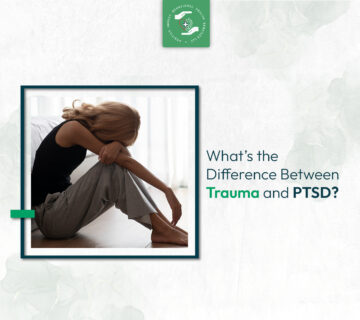Navigating the path to mental wellness can be challenging, but finding the right mental health clinic is a critical step. Whether you’re seeking support for anxiety, depression, or other mental health concerns, the right clinic can provide the care and understanding you need to heal.
1. Identify Your Mental Health Needs
Understanding your own mental health needs is the first crucial step towards choosing the best clinic. Are you looking for support with anxiety, depression, or perhaps something more specific like PTSD or eating disorders? Knowing what you need help with can guide you towards clinics that specialize in those areas, ensuring you get the care that’s right for you.
It’s also important to consider the severity of your condition. For more severe or complex issues, a clinic with a multi-disciplinary team capable of offering comprehensive care might be necessary. Reflecting deeply on your needs will help narrow down your search effectively.
2. Research the Clinic’s Specializations
Once you know what kind of support you need, it’s time to look into the specializations of mental health clinics. Many clinics focus on specific areas of mental health, such as anxiety disorders, mood disorders, or child and adolescent mental health. Researching the clinic’s focus areas ensures you choose a place that’s equipped to offer the best support for your specific condition.
3. Consider the Location and Accessibility
The location of the clinic can play a big role in your journey to wellness. A clinic that’s conveniently located can make it easier for you to attend regular sessions, whether it’s close to your home, school, or workplace. Additionally, consider the clinic’s accessibility, including public transportation options and parking availability, to ensure it fits seamlessly into your lifestyle.
4. Check for Licenses and Accreditations
Ensuring that a mental health clinic is properly licensed and accredited is essential. Licenses indicate that the clinic meets certain standards of care and that their staff are qualified to provide mental health services. Accreditations, on the other hand, may reflect a clinic’s commitment to maintaining high standards. Checking for these credentials can provide peace of mind about the quality of care you’ll receive.
Don’t hesitate to ask for this information directly from the clinic. Reputable clinics should be transparent about their accreditations, licenses, and the qualifications of their staff.
5. Ask About the Treatment Approaches
Different mental health clinics may employ a variety of treatment approaches, and it’s vital to find one that aligns with your preferences and beliefs. Whether it’s cognitive-behavioral therapy (CBT), psychoanalysis, medication, or a combination of therapies, understanding the clinic’s methodologies will help you make an informed decision.
6. Inquire About Insurance and Payment Options
The cost of mental health care can be a concern for many individuals. Before committing to a clinic, inquire about their insurance policies and payment options. Many clinics accept a range of insurance plans, and some may offer sliding scale fees based on income. Understanding the financial aspect upfront can alleviate stress and ensure that you can afford the necessary care.
7. Evaluate the Clinic’s Environment and Staff
The environment of the mental health clinic and the demeanor of its staff can significantly impact your comfort and willingness to engage in therapy. Visit the clinic beforehand, if possible, to get a sense of the atmosphere and how you’re treated by the staff. A warm, welcoming environment and compassionate, attentive staff can make all the difference in your treatment experience.






No comment